
Ancient Agora of Kos: A Journey Through Time
Step back in time at the Ancient Agora of Kos, where history comes alive amidst the ruins of a once-thriving ancient city.
Explore the ruins of the Ancient Agora in Kos, the historical heart of the island's social, commercial, and political life from the 4th century BC. Discover temples, sanctuaries, and the remnants of a once-bustling marketplace, offering a glimpse into ancient Greek civilization.
A brief summary to Part of the Ancient Agora
- Kos, 853 00, GR
Local tips
- Visit early in the morning or late in the afternoon to avoid crowds and enjoy a more peaceful exploration of the site.
- Wear comfortable shoes, as you'll be walking on uneven ground while exploring the ruins.
- Bring water and sun protection, especially during the hot summer months.
- Combine your visit with a trip to the nearby Archaeological Museum of Kos to see artifacts unearthed from the site.
Getting There
-
Walking
The Ancient Agora is located in the heart of Kos Town, a short walk from the main harbor and Eleftherias Square. From the harbor, walk south towards the city center. You'll find the entrance to the Agora near the intersection of Grigoriou V and Ippokratous streets. The walk is generally flat and takes about 5-10 minutes from most central locations. No costs are associated with this approach.
-
Public Transport
If arriving by bus at the main bus station on Kleopatras Street, walk south towards the harbor. Turn right onto Ippokratous Street and continue for a few blocks until you reach the Agora on your left. A local bus ticket within Kos Town costs approximately €1.50. The walk from the bus station is about 10-15 minutes.
-
Taxi
Taxis are readily available throughout Kos Town. Ask your driver to take you to the Ancient Agora near Ippokratous Street. A short taxi ride within Kos Town will typically cost between €5 and €10. Taxi ranks can be found near the harbor and Eleftherias Square.
Discover more about Part of the Ancient Agora
Iconic landmarks you can’t miss
Part of the Ancient Agora
0.0 km
Step back in time at the Ancient Agora of Kos, where history comes alive amidst the ruins of a once-thriving ancient city.
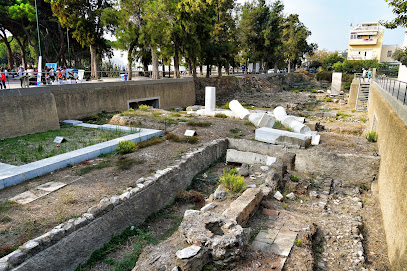
Statue Stratilati Th.Kolokotroni
0.1 km
Discover the cultural heritage of Greece at the Statue of Stratilati Th. Kolokotroni in Kos, a striking tribute to a national hero.
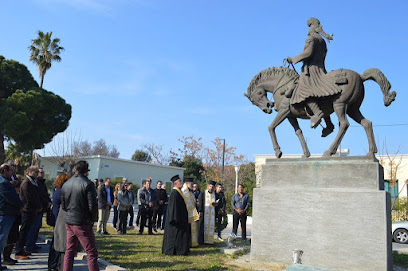
Kos Municipal Market
0.2 km
Experience the vibrant heart of Kos Town at the Municipal Market, a sensory delight of local flavors, crafts, and culture in a historic setting.
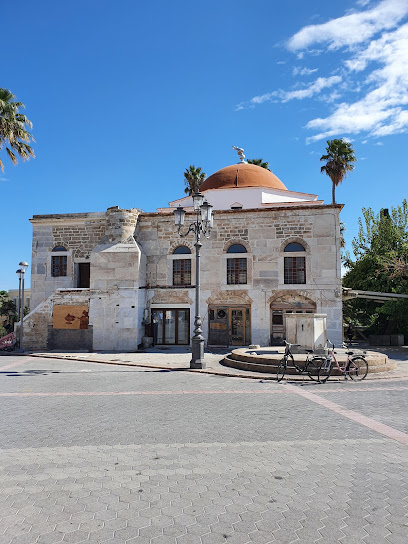
Southwest medieval bastion
0.2 km
Explore the historical splendor of the Southwest Medieval Bastion in Kos, Greece - a captivating landmark with stunning views and rich medieval history.
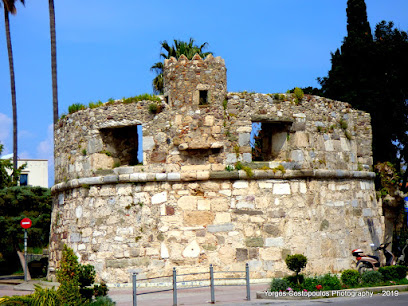
Defterdar Mosque
0.2 km
Explore the Defterdar Mosque in Kos, a stunning historical landmark that reflects the island's rich cultural heritage and architectural beauty.
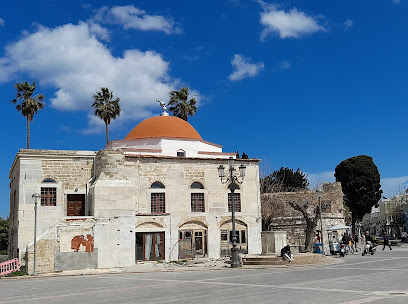
Sanctuary of Aphrodite
0.2 km
Discover the ancient Sanctuary of Aphrodite in Kos Town, a historical site dedicated to the goddess of love and seafaring, dating back to the 2nd century BC.
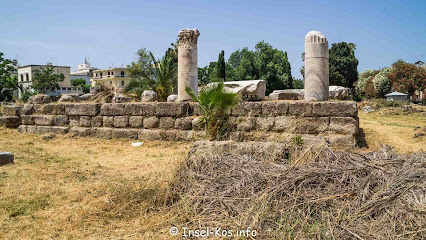
Greek Designers - Greek Products
0.3 km
Discover unique Greek designs: clothing, accessories, and handcrafted items showcasing local artistry in the heart of Kos Town.
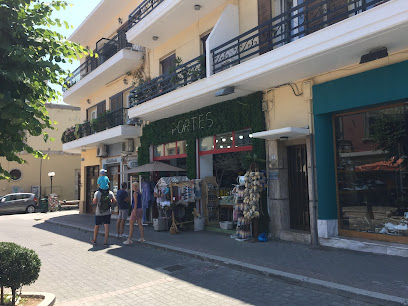
Tourist train Kos
0.3 km
Discover Kos Town's highlights with a relaxing ride on the charming tourist train, perfect for families and sightseers of all ages.
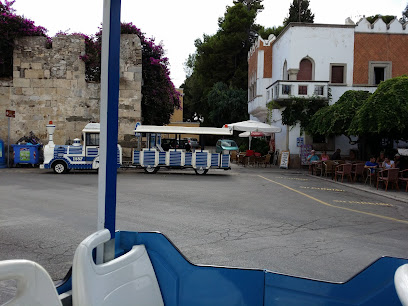
The Loggia mosque - Mosque of Gazi Hassan Pasha
0.3 km
Discover the stunning Loggia Mosque in Kos, a historical landmark showcasing Ottoman architecture and cultural heritage.
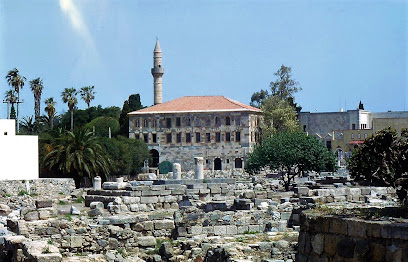
Ιπποτική Οικία του κομεντόρη Fransesco Sans
0.3 km
Discover the rich history and stunning architecture of the Ipoptiki Ikia tou komentori Fransesco Sans, a must-see landmark in Kos, Greece.
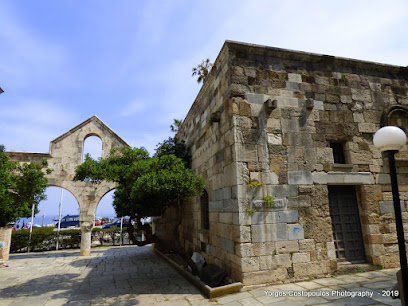
Sail Kos
0.3 km
Experience the enchanting beauty of the Aegean Sea with Sail Kos, offering unforgettable boat tours and stunning island adventures.
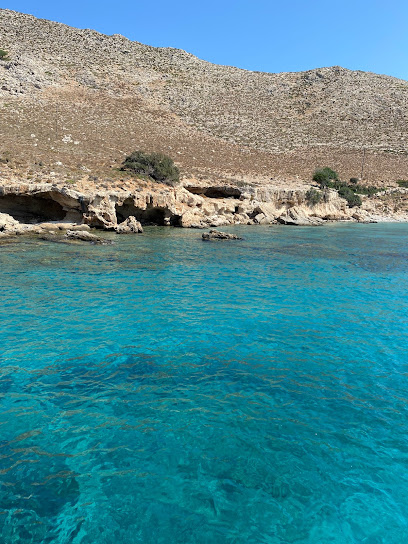
Jasmin Private Cruises
0.4 km
Experience personalized boat tours in Kos. Perfect for families, parties, and unique sea adventures. Discover hidden gems and create lasting memories.

Ancient Nymphaion
0.4 km
Explore the surprisingly elaborate ruins of a Roman-era public lavatory and bath complex in the heart of Kos's Western Archeological Zone.
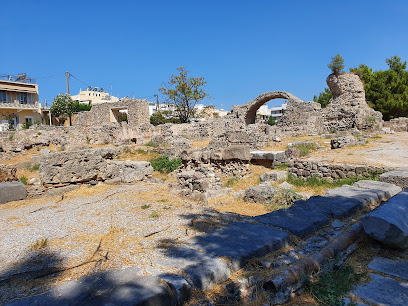
Hospitaller House of Commander Francesco Sans
0.5 km
Discover medieval history and architecture at the Hospitaller House of Commander Francesco Sans in Kos, a landmark of the Knights Hospitaller.
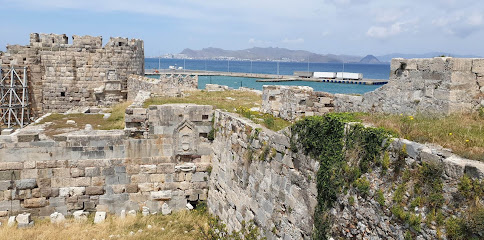
Παραλιακή Οδός πόλης Κω
0.5 km
Experience the charm of Kos Town with a stroll along Paraliaki Odos, a scenic coastal road brimming with history and local flavor.
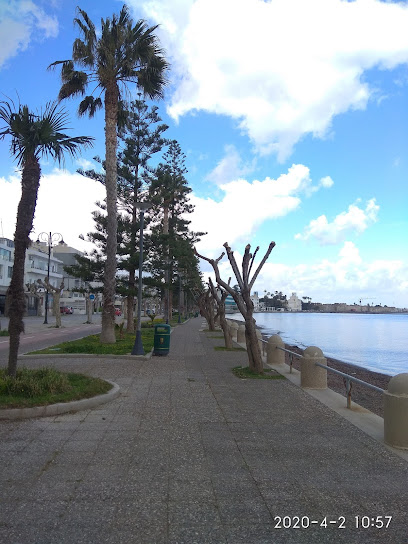
Unmissable attractions to see
Church of Agia Paraskevi
0.2 km
Explore the historical Church of Agia Paraskevi in Kos, a stunning example of Greek Orthodox architecture and a serene retreat for all visitors.
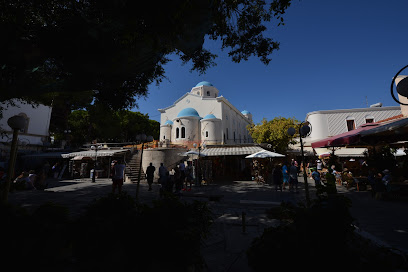
Eleftherias Central Square
0.2 km
Discover the vibrant heart of Kos at Eleftherias Central Square, a cultural hub filled with history, local cuisine, and lively entertainment.
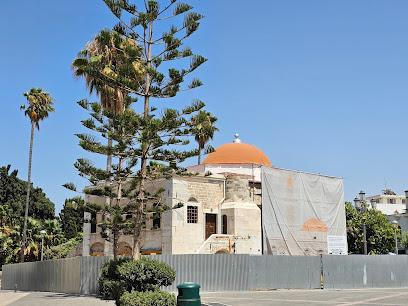
Archaeological Museum of Kos
0.2 km
Explore the Archaeological Museum of Kos and journey through ancient Greece’s rich history and stunning artifacts.
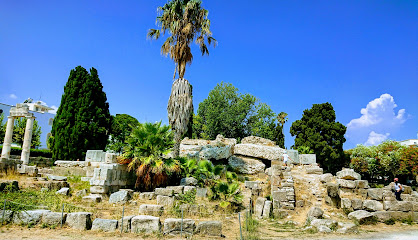
Δεξαμενή Πηγαδιού
0.2 km
Explore the serene beauty and cultural richness of Deoxamení Pigádi, a captivating tourist attraction in Kos, Greece.
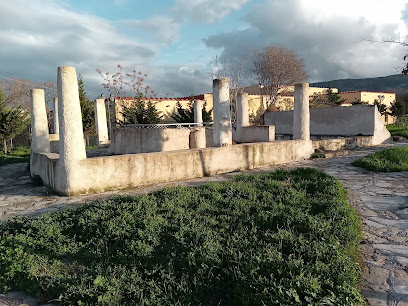
Casa Romana
0.2 km
Discover the beauty and history of Casa Romana, a remarkable Roman landmark in Kos, Greece, where ancient architecture and culture intertwine.
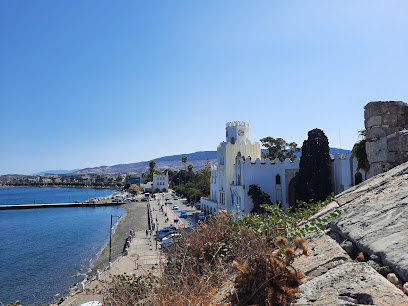
Kos Old Town
0.3 km
Discover the enchanting streets of Kos Old Town, where ancient history meets vibrant culture in the heart of Greece.
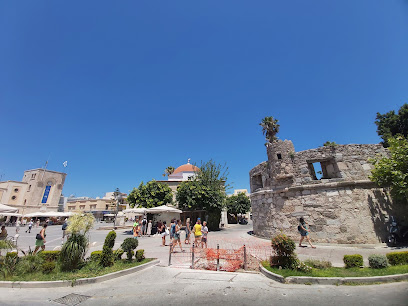
Statue of Hippocrates
0.3 km
Explore the Statue of Hippocrates in Kos, Greece, a symbol of ancient medicine surrounded by beautiful gardens and rich history.
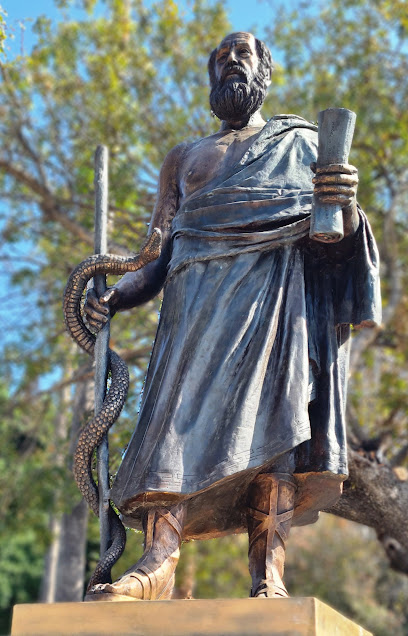
Fountain Space
0.3 km
Explore the enchanting Fountain Space, a serene tourist attraction in Kos, Greece, where history and tranquility meet in a vibrant urban setting.
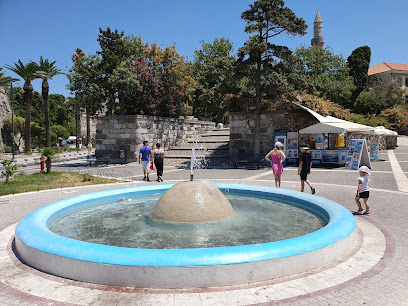
I LOVE KOS
0.3 km
Explore the iconic I LOVE KOS sign, a must-visit tourist attraction on the stunning island of Kos, Greece, perfect for unforgettable photos and local experiences.
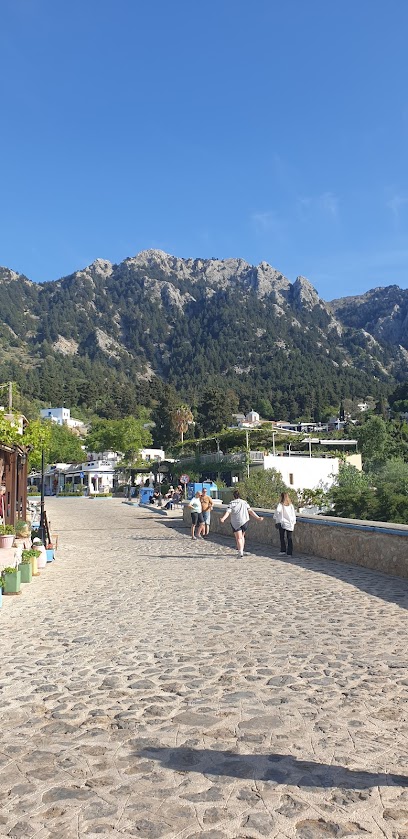
Hippocrates Plane Tree
0.3 km
Explore the legendary Hippocrates Plane Tree in Kos, a historic landmark that blends rich history with natural beauty, perfect for tourists and nature lovers.
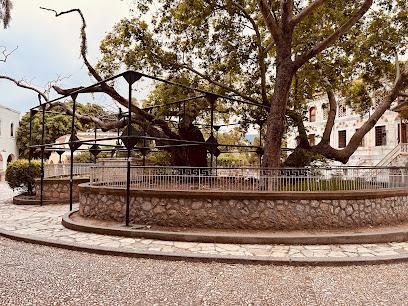
Πηγή Ιπποκράτη
0.4 km
Explore the historical significance of Hippocrates' Tree, a serene and culturally rich attraction in Kos, Greece, perfect for history enthusiasts.

Λεωφόρος των Φοινίκων
0.4 km
Explore the stunning Leoforos Ton Foinikon in Kos, where breathtaking views meet rich history and vibrant local culture.
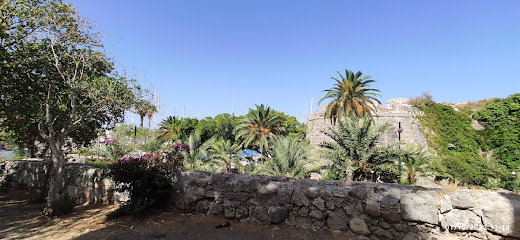
Western Archaeological Zone
0.5 km
Discover ancient Greek and Roman history at Samos' Western Archaeological Zone, featuring stunning mosaics and ancient ruins.

Palazzo del Governo
0.5 km
Explore the stunning Palazzo del Governo in Kos, Greece - a captivating blend of history and architecture by the sea.
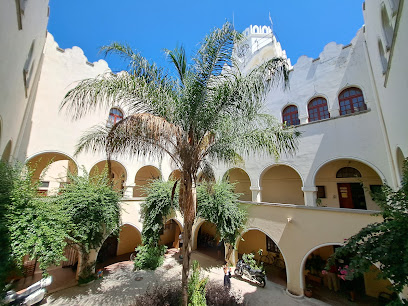
Castle of the Knight of Saint John
0.5 km
Discover the enchanting Castle of the Knight of Saint John in Kos, a historic fortress rich in heritage and breathtaking views of the Aegean Sea.
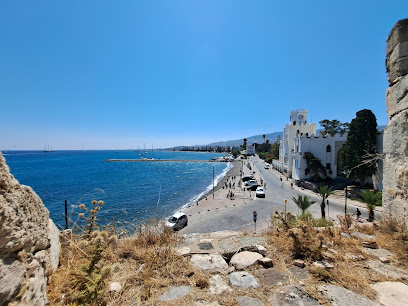
Essential places to dine
MOM'S KITCHEN
0.3 km
Experience authentic Greek cuisine at Mom's Kitchen in Kos – where every dish feels like home!
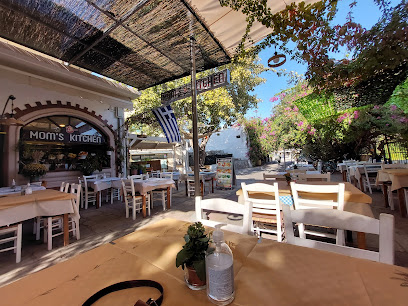
Elia
0.3 km
Discover Elia in Kos for an unforgettable dining experience featuring authentic Greek cuisine and innovative tapas served in a charming setting.
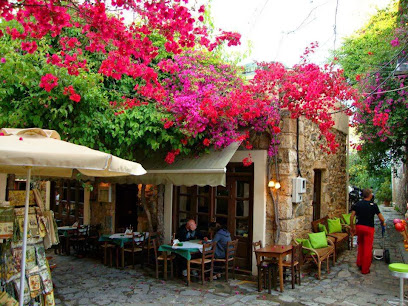
Ambrosia Meze - Restaurant
0.3 km
Discover authentic Greek cuisine at Ambrosia Meze in Kos – where fresh ingredients meet traditional recipes for an unforgettable dining experience.

Ampavris Taverna
0.4 km
Discover the heart of Greek culinary tradition at Ampavris Taverna in Kos - where flavor meets hospitality.
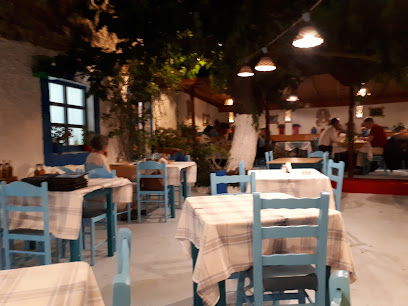
Hirodion
0.5 km
Experience authentic Greek cuisine at Hirodion in Kos – where every meal tells a story of tradition and flavor.
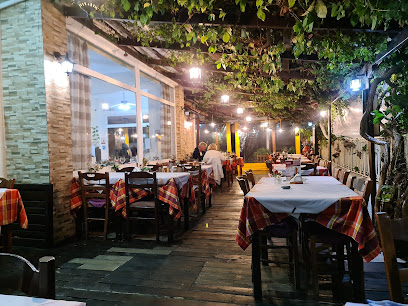
Broadway Restaurant
0.5 km
Experience innovative Greek fusion cuisine at Broadway Restaurant in Kos - where tradition meets creativity in every dish.

olivity kos
0.6 km
Experience the essence of Mediterranean dining at Olivity Kos – where fresh ingredients meet exquisite flavors in a charming setting.

Degli Amici
0.6 km
Experience authentic Italian flavors at Degli Amici in Kos; where every meal is a delightful journey into Italy's culinary traditions.
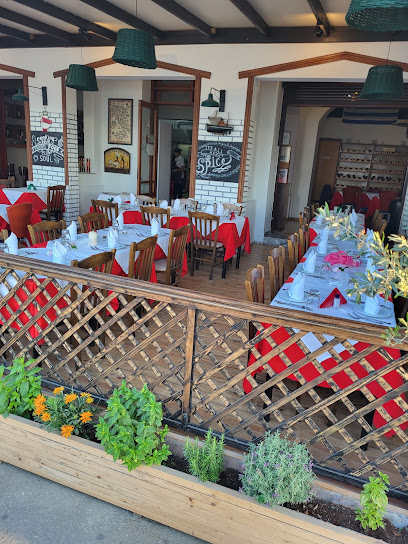
Koako Mediterranean taverna
0.6 km
Discover authentic Mediterranean flavors at Koako Taverna in Kos - where every meal tells a story.

Mummy's cooking (Ευδοκία-Eudokia)
0.7 km
Experience authentic Greek cuisine at Mummy's Cooking in Kos - where every dish tells a story.

Noah's Ark
0.7 km
Discover authentic Armenian cuisine at Noah's Ark in Kos - where every meal tells a story through rich flavors and tradition.

Olympia restaurant cafe
0.7 km
Experience authentic Greek cuisine at Olympia Restaurant Cafe in Kos - where tradition meets taste.

Boats On The Coast
0.8 km
Experience exquisite Mediterranean dining with breathtaking sea views at Boats On The Coast in Kos.

Agkyra Fish Restaurant in Kos Town
0.8 km
Experience authentic Greek and Mediterranean cuisine at Agkyra Fish Restaurant in Kos Town, where fresh seafood meets stunning views.

Barbouni
0.8 km
Experience exquisite seafood dining at Barbouni in Kos—where fresh flavors meet stunning seaside views for an unforgettable meal.

Markets, malls and hidden boutiques
Diana Sports Shop
0.0 km
Explore the great outdoors with quality gear from Diana Sports Shop, Kos's top destination for hunting and fishing enthusiasts.

Funky Buddha
0.0 km
Discover stylish clothing for the whole family at Funky Buddha in Kos, Greece – a vibrant hub for fashion lovers.

Think Pink, Kos
0.1 km
Explore Think Pink in Kos for stylish fashion accessories that capture the essence of Greek chic. Shop unique pieces that elevate your style.
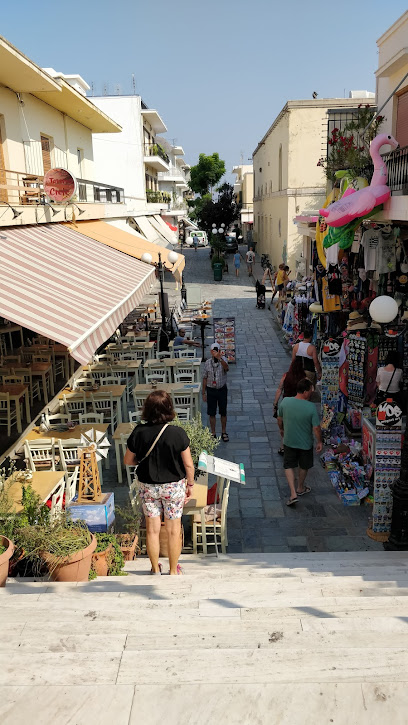
MILVA
0.1 km
Discover the best shopping in Kos at MILVA, where variety meets quality in a vibrant atmosphere perfect for tourists and locals alike.

Hondos Center
0.1 km
Explore Hondos Center in Kos for a diverse shopping experience featuring fashion, beauty, and home essentials in a vibrant atmosphere.

KOS NET
0.1 km
Discover KOS NET, a vibrant shopping mall in Kos, Greece, where shopping meets dining in a lively atmosphere perfect for tourists.
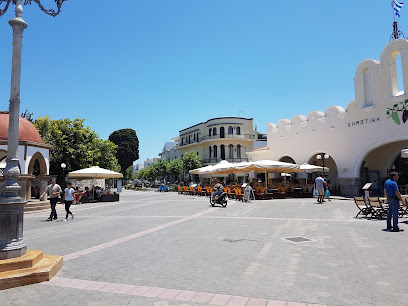
Ashorte Vintage Treasures
0.1 km
Explore Ashorte Vintage Treasures in Kos for a unique shopping experience filled with timeless vintage clothing and accessories that tell a story.

Peppermint Women's Clothing Store Kos
0.1 km
Explore stylish women's apparel and accessories at Peppermint Women's Clothing Store in Kos, the ultimate boutique for fashion lovers.

Parfois Kos
0.1 km
Discover the latest trends and stylish accessories at Parfois Kos, the ultimate fashion destination in beautiful Kos, Greece.
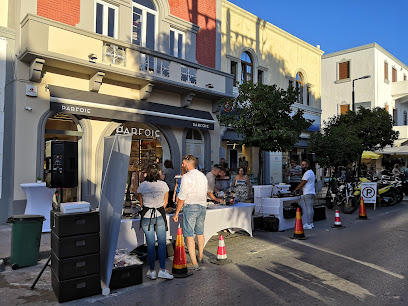
Pink Woman
0.1 km
Discover the essence of Greek fashion at Pink Woman, where contemporary style meets quality and elegance in women's clothing.

Spatz
0.2 km
Explore Spatz in Kos for stylish clothing and accessories that reflect Mediterranean charm and elegance.

COO leatherware
0.2 km
Experience the artistry of handcrafted leather goods at COO Leatherware in Kos, where tradition meets timeless style.

Last Stop
0.2 km
Discover unique fashion treasures at Last Stop, a charming boutique in Kos that embodies the spirit of Greek style.

Global Bazaar ~ Souvenirs Kos
0.2 km
Explore the vibrant Global Bazaar in Kos, offering unique souvenirs and local handicrafts that capture the essence of your travels.

The Fairy Shop old town
0.2 km
Discover the magic of Kos at The Fairy Shop, your destination for unique gifts and local crafts in the heart of the old town.

Essential bars & hidden hideouts
Up Espresso Wine Bar
0.1 km
Discover the perfect blend of coffee and wine at Up Espresso Wine Bar in Kos, where ambiance meets exceptional service.
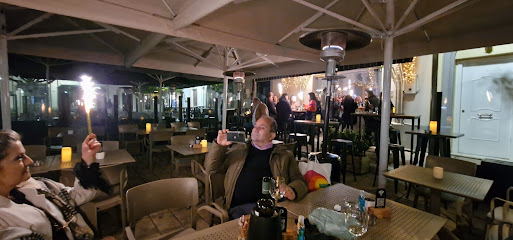
More Cafe Bar
0.3 km
Discover the vibrant atmosphere of More Cafe Bar in Kos, where delicious flavors meet a welcoming ambiance, perfect for relaxation and socializing.
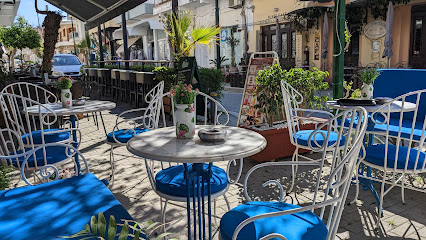
Camel Bar
0.3 km
Camel Bar in Kos: A vibrant nightlife destination offering stunning waterfront views, delicious cocktails, and an unforgettable atmosphere for all visitors.
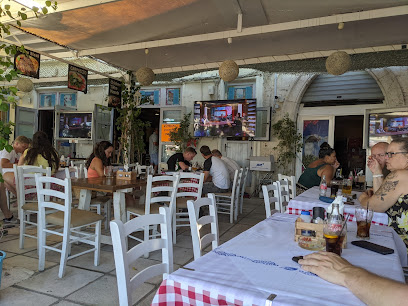
Arco Loungebar Kos
0.4 km
Discover the lively Arco Loungebar Kos, where delightful drinks and delicious dishes create the perfect ambiance for a memorable night out.

VIE Cafe Bar Kos
0.4 km
Discover the vibrant atmosphere of VIE Cafe Bar in Kos, where expertly crafted cocktails and a welcoming ambiance await you.

Sitar Cocktail Bar
0.4 km
Experience vibrant nightlife and expertly crafted cocktails at Sitar Cocktail Bar in Kos, Greece - the perfect place to unwind after a day of adventure.
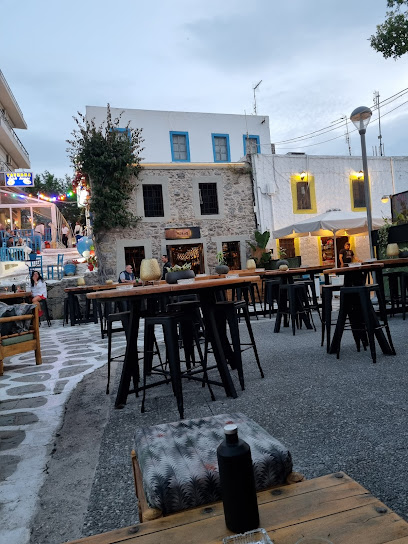
Zero Cafe - Bar - Beer Garden
0.5 km
Discover the lively charm of Zero Cafe - Bar - Beer Garden in Kos, where great drinks and a vibrant atmosphere come together for an unforgettable experience.

DEPBAR KOS
0.5 km
Experience the vibrant nightlife of Kos at DEPBAR KOS, where expertly crafted cocktails meet a lively atmosphere, perfect for every traveler.

Blues Brothers
0.6 km
Experience the vibrant nightlife at Blues Brothers Bar in Kos, where great drinks, music, and unforgettable moments await every visitor.

XL cafe & cocktail bar
0.7 km
Experience the vibrant nightlife at XL Cafe & Cocktail Bar in Kos, where expertly crafted cocktails and a lively atmosphere await every visitor.
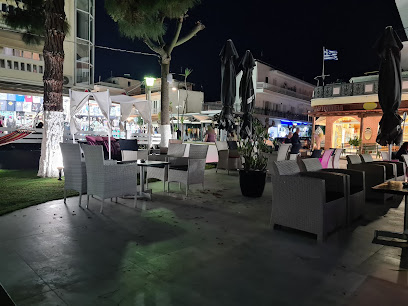
Théa Rooftop Bar & Lounge
0.9 km
Discover the enchanting Théa Rooftop Bar & Lounge in Kos for breathtaking views, exquisite cocktails, and a vibrant atmosphere that elevates your night out.

Omega Sky Bar ~ Cocktail Bar Kos
0.9 km
Discover the breathtaking views and exquisite cocktails at Omega Sky Bar, a premier cocktail destination in Kos, Greece.
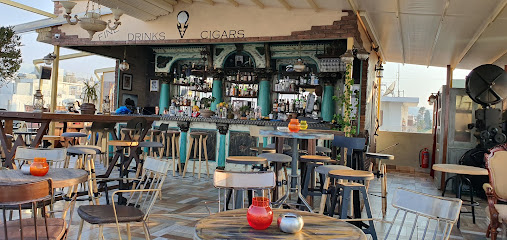
Jacksons bar/pub/restaurant/beach/suites
0.9 km
Discover Jackson's Bar in Kos - A vibrant blend of dining, cocktails, and entertainment by the sea, perfect for your island getaway.
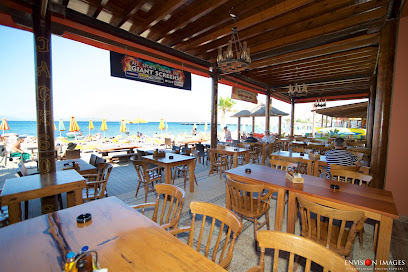
Uniq beach bar & restaurant
0.9 km
Discover the perfect blend of relaxation and flavor at Uniq Beach Bar & Restaurant in Kos, where delicious meals meet stunning sea views.

Papas Beach Bar - Water sports - Shisha
1.2 km
Discover the ultimate beachside experience at Papas Beach Bar, where relaxation meets adventure with water sports, cocktails, and shisha.

Nightclubs & after hour spots
West bar
0.3 km
Experience Kos nightlife at West Bar, where vibrant music, delicious cocktails, and a lively crowd come together for unforgettable nights.

Kyttaro club
0.3 km
Experience the electrifying nightlife at Kyttaro Club, Kos' premier destination for dancing, music, and unforgettable memories.

Club Charisma KOS
0.3 km
Experience the electrifying nightlife at Club Charisma KOS, where the beats are infectious and the atmosphere unforgettable.

Wild Bull Club
0.3 km
Immerse yourself in the vibrant nightlife of Kos at Wild Bull Club, a pulsating venue known for its electrifying atmosphere and diverse beats.
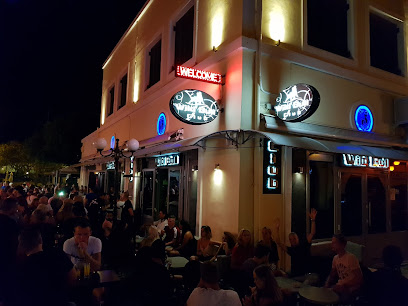
Hamam Kos
0.3 km
Discover the vibrant nightlife of Kos at Hamam Kos, a cocktail bar renowned for its creative drinks and lively atmosphere.
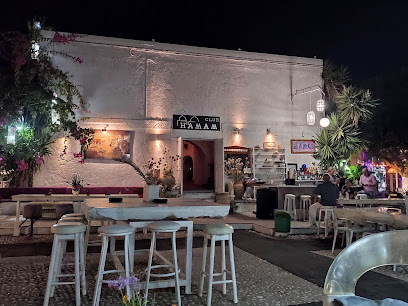
Strand Beach Club
1.0 km
Experience the vibrant atmosphere at Strand Beach Club in Kos, Greece, where delicious food meets stunning beach views for an unforgettable day.

Mattatoio
1.7 km
Dive into the electrifying nightlife of Kos at Mattatoio, where music, dancing, and vibrant energy unite for an unforgettable experience.

Playhouse Emmanouela
1.7 km
Discover the electrifying nightlife at Playhouse Emmanouela in Kos – the ultimate night club experience in Greece's vibrant party scene.
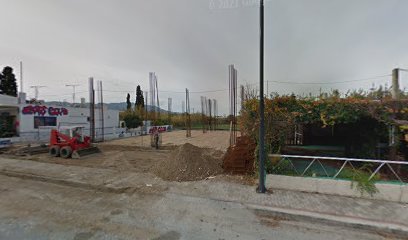
Black Amber Club Kos
2.0 km
Discover the electrifying nightlife of Black Amber Club Kos, where vibrant energy meets unforgettable entertainment in a stunning setting.

The Club Zone
13.0 km
Experience electrifying nights at The Club Zone in Kardamena, where vibrant music and friendly vibes create unforgettable memories.

Night Bar
13.1 km
Enjoy delightful cocktails and live music at the Night Bar, where stunning Aegean Sea views create an unforgettable nightlife experience.

Malibu Beach Bar
16.4 km
Discover the idyllic Malibu Beach Bar in Kardamena, Greece, where relaxation meets the vibrant beach atmosphere for a perfect getaway.

Downtown Club
17.7 km
Discover the heartbeat of Kardamena's nightlife at Downtown Club, where live music, cocktails, and dancing create unforgettable experiences.

Infinity Club
17.7 km
Discover the pulsating nightlife at Infinity Club in Kardamena, where unforgettable experiences and vibrant music await every visitor.
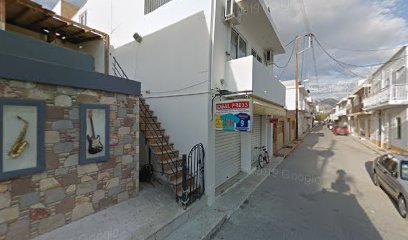
Sarai Club
17.8 km
Experience the electrifying nightlife at Sarai Club in Kardamaina, where vibrant music, stylish ambience, and great cocktails await you.




